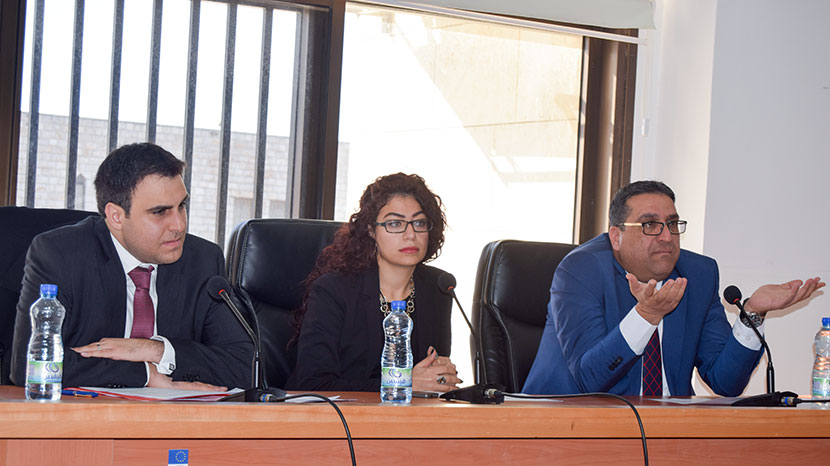Specialist Discusses UN Resolution against Illegal Israeli Settlements
The Faculty of Law and Public Administration held a lecture on January 11, 2016 to discuss United Nations Security Council Resolution 2334, on the legality of Israel's settlements.
Speakers included advisor to the first General Delegation of Palestine at the United Nations Majed Bamya and dean of the Faculty of Law and Public Administration Yasser Amouri. Both discussed the legal implications of the resolution.
Amouri presented a legal analysis of the resolution, stating that it identifies the legal status of Israel as an occupier, as well as the status of the Palestinian territories as an occupied land.
"A key motif in the resolution is the need to cease all settlement activity and consider it a war crime,” he said, “which requires the international community's intervention, in accordance with the provisions and rules of international law."
Amouri stated that the Palestinian Authority must continue its efforts to guarantee the resolution's implementation, suggesting it go to the International Criminal Court based on the Geneva Agreements.
Bamia talked about the diplomatic and legal efforts made by Palestine, which led the Security Council to issue the Resolution. "Palestine has been working since 1980 to get a resolution that condemns the legality of the Israeli settlements. However, the American veto always hindered any progress."
Bamia then explored the provisions of the resolution, showing that its third paragraph reaffirms the United Nations’ refusal to recognize any change to the June 4, 1967 lines, including East Jerusalem, other than those agreed upon by the parties through negotiations.
Such a provision, according to Bamia, aims to guarantee that any demand by the United States to set a different boundary, including through land swaps, will be referred to as an Israeli demand that deviates from what is stated in the resolution. It will serve Palestinians as a bargaining chip.







